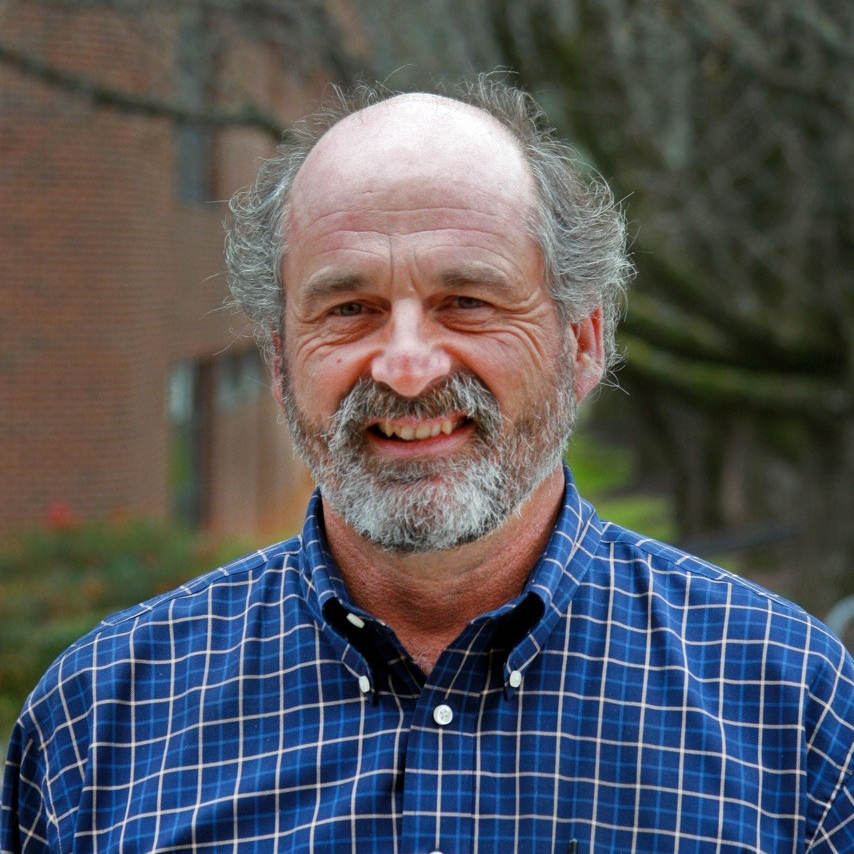
Neal Eash
Executive MBA – Strategic Leadership Class of 2022
Soil Scientist & Professor at the University of Tennessee, Knoxville
Growing up on a Mennonite farm in Ohio, Professor Neal Eash hadn’t originally planned on attending college, much less earning his doctorate and becoming a leading expert in the fields of soil science and carbon sequestration. However, his father recognized his academic talents and pushed him to consider higher education.
“After my dad was injured in a farming accident, I ran the farm, and I loved it,” the soil scientist shared. “I never intended to go to college. But when I was in high school, my dad told me he wasn’t going to help me continue to farm. He said, ‘You’ve got brains, and you need to go to college.’”
Seeds of Success: The Path to Soil Science
In the early 1980s, Eash and his wife went to Africa to work with farmers during a serious drought. Their goal was to bolster food production, and as the project progressed, Eash explored the relationship between risk management and profitability, building on what would become a lifelong zeal for research. Upon returning to the U.S., he decided to pursue a bachelor’s degree from Iowa State. With a hunger for knowledge, in less than eight years, Eash completed his bachelor’s, master’s, and doctorate.
Following his graduation, he spent three years working as an agricultural extension specialist at the University of Tennessee, Knoxville, and then transitioned to a role developing a University of Minnesota agronomy program offered at Southwest State University. After establishing the program, he accepted an offer to return to UT, teaching thousands of students across his impressive career.
“I’ve had between 8,000 and 9,000 students in my classroom,” Eash said. “It’s been fun. It’s been really fun.”
Today, Eash is world-renowned for his work, having contributed to a long list of high-impact publications and secured millions in grant funding. He remains dedicated to advancing the fields of soil science and carbon sequestration, continuing to research and teach. At home, Eash runs his own 100-acre farm, and he hopes to soon help 100,000+ African small-acreage farmers gain carbon payments for sequestering C using no-till planting and cover crops.
The Classroom Meets the Boardroom
A sought-after professor, although Eash was considered for leadership roles throughout his career, the time constraints of balancing leadership training with teaching presented a challenge. Ultimately, a solution arose when Eash ran into a colleague who told him about the Executive MBA – Strategic Leadership (EMBA-SL).
The EMBA-SL program transformed Eash’s perspective on leadership, and he enjoyed learning from classmates, whose roles spanned numerous industries and functions.
“I gained skills by doing nothing other than listening to my classmates,” Eash explained. “It was just phenomenal.”
The one thing the entire cohort had in common, Eash noticed, was a desire to better themselves and their organizations. As business executives, most of his classmates were used to working as part of a larger team and operating in a culture of shared responsibility. This was a tremendous learning experience for Eash, as much of his academic work required operating alone.
“What I noticed about my classmates was how driven they are, what good people skills they have and how they use those skills,” he explained. “They’re so powerful, but yet they’ve learned the lesson that we all have to move together.”
Eash’s program experience transformed the way he approached his academic work, helping him to lean into his strengths and explore new talents.
“As a faculty member, the program helped me to better understand what we need to do for the good of the organization, to move things forward,” he said.
EMBA Words of Wisdom
One of the most valuable aspects of the EMBA-SL program for Eash was the opportunity to expand skills that he hadn’t considered. In addition to helping him build his existing skill set, the faculty and cohort helped him to step outside of his comfort zone and grow in new ways.
“Often people know what their skills are, but they don’t know what skills they have that they aren’t using,” he said. “In this program, they invest in you, and if you want to bring those experiences to the forefront, they’ll help you.”
Eash encourages prospective EMBA-SL students, especially those working in academia, to take the leap.
“The program helps you develop skills you may not even realize you have,” he said. “All of a sudden, when you graduate, you realize that you can do so many things, if you take the time to build up those strengths.”